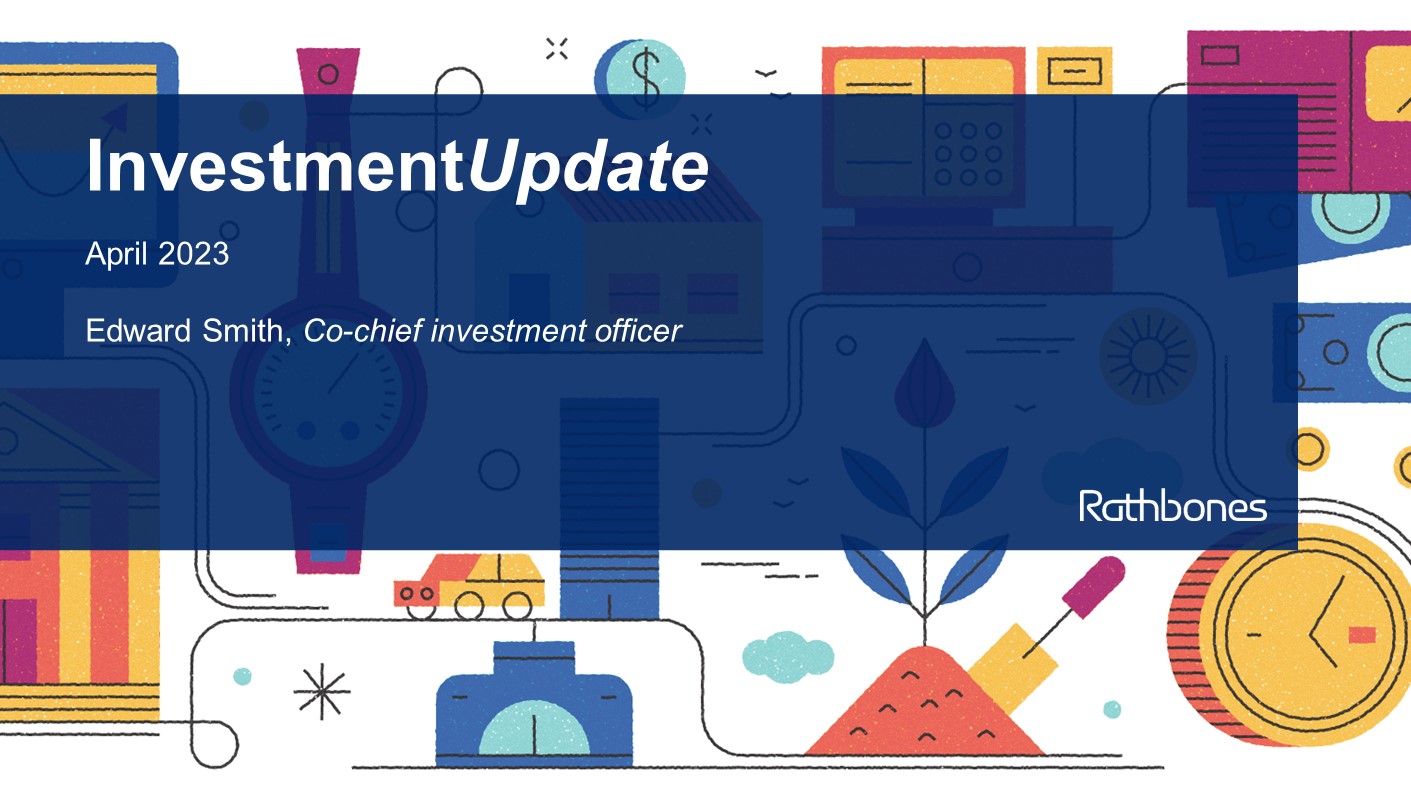Quarterly Investment Update video Q2 2023
A year of rapid-fire interest rate hikes by central banks is yet to be fully felt by the wider economy. Rathbones’ co-chief investment officer Ed Smith explains why that makes us cautious.

Article last updated 22 July 2025.
We think a mild global recession is more likely than not this year, especially following the collapse of three medium-sized US lenders and the forced merger of globally significant behemoth Credit Suisse. The large tightening of interest rates should soon come to an end. However, it’s important to remember that central bank rate hikes aren’t truly felt for roughly a year or so after they are implemented. The US still has the full effect of 4.5 percentage points of tightening to come through.
But we doubt that central bankers will be cutting rates anytime soon. Inflation is simply too stubbornly high. Further tightening is still likely, however, through banks making fewer loans. The recent banking tumult should push many to tighten up their lending conditions and improve their financial health to avoid being tarred with the same brush. That will make it yet harder for households and businesses to refinance their debts – we expect new business loans to drop by a tenth in America.
We think stock markets, particularly the US, are too expensive, given the outlook for economic growth and the likelihood of persistently higher-than-expected inflation. An awful lot of things will have to go perfectly in an increasingly antagonistic world for these optimistic equity prices to be vindicated.
US government bonds with between one and two years till maturity give us a return of between 4% and 5% for the first time in over 15 years, default-risk free and without the large swings that impact longer-dated bonds due to changes in prevailing interest rates.
Navigating mild recessions is a normal part of investing. They rarely hold back equity returns for long, so we’re staying invested. In the meantime, we’re focussed on companies with strong returns on their investments, easily manageable levels of debt and high profit margins that remain stable.
You can also read our Quarterly InvestmentUpdate here



